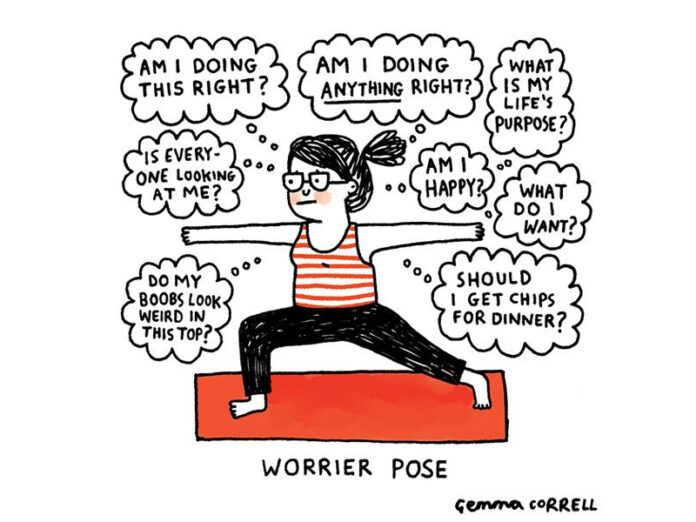
We are all familiar with feeling anxious or we wouldn’t be human. Our ability to experience anxiety and activate the fight, flight, or freeze behavioural response is extremely valuable and helped our ancestors survive danger such as the approaching sabre-tooth tiger. The problem is, for many of us, the threshold for activating the part of the brain (the amygdala) that triggers our survival response is set too low, kind of like a smoke detector that goes off just because you burn a piece of toast. Once it goes off, we mistake discomfort in our bodies with danger. However, uncomfortable body sensations produced by anxiety are not dangerous at all.
Anxiety is not something we can, or even want to, eliminate. On the positive, it helps us put in a bit more effort to things that matter to us. It is hard to imagine asking for a pay raise, or a date, or commit to an education/career without feeling some anxiety. A life where nothing mattered and we felt constantly bored with ourselves and our surroundings would not be desirable to most people. Psychologists talk about that anxiety sweet spot, where moderate levels of arousal help us stay alert and invigorated, but do not incapacitate.
Here are some suggestions for how to better relate to our anxiety or even learn to embrace it:
A cared-for mind and body are better able to stay calm and cool. We create a that by doing the things most mothers tell their children: get good sleep, eat well and exercise daily.
To fully manage our anxiety we need to think differently. FEAR can be considered False Evidence Appearing Real. Our minds can trick us. We tend to overestimate danger and underestimate our ability to cope. We easily get caught up in catastrophic thinking such as, “what if people notice my hands shake when I give the presentation; what if I get crowded out in that open water swim?” Our natural human response is to accommodate those fears by avoiding that which makes us uncomfortable. It is surprisingly easy to come up with excuses and tell ourselves that we don’t really like lake swimming, that we prefer a10-hour train ride to flying. While that offers some temporary relief, it only feeds the anxiety in the longer run by giving in to it.
We need to de-catastrophize our fears, question the real probability for disaster and review our ability to cope, even with worst-case scenarios.
Every day we can commit to making ourselves slightly uncomfortable and realize we can cope with it! The worst that happens is a bit of discomfort, which lessens as we face what makes us anxious more and more.
We will begin to enjoy the added benefit of a fuller life with more time and energy spent on meaningful pursuits as opposed to being controlled by misinterpreting imperfect brain mechanisms and body sensations as dangerous and unmanageable.













